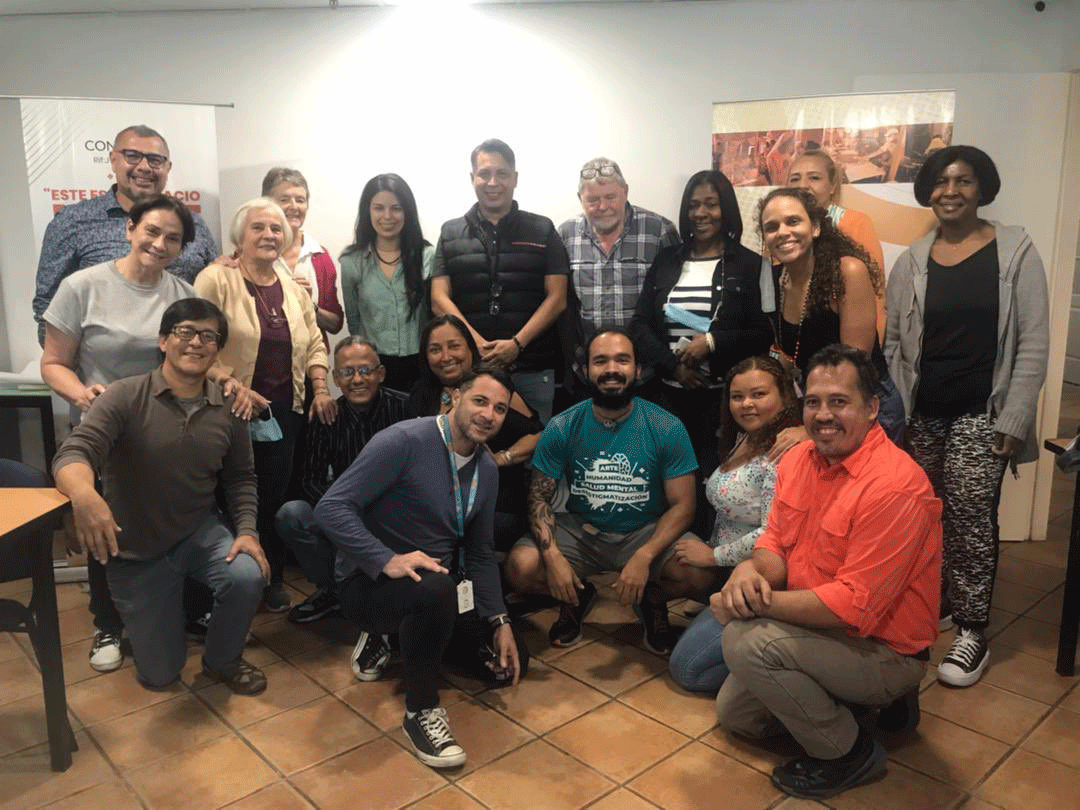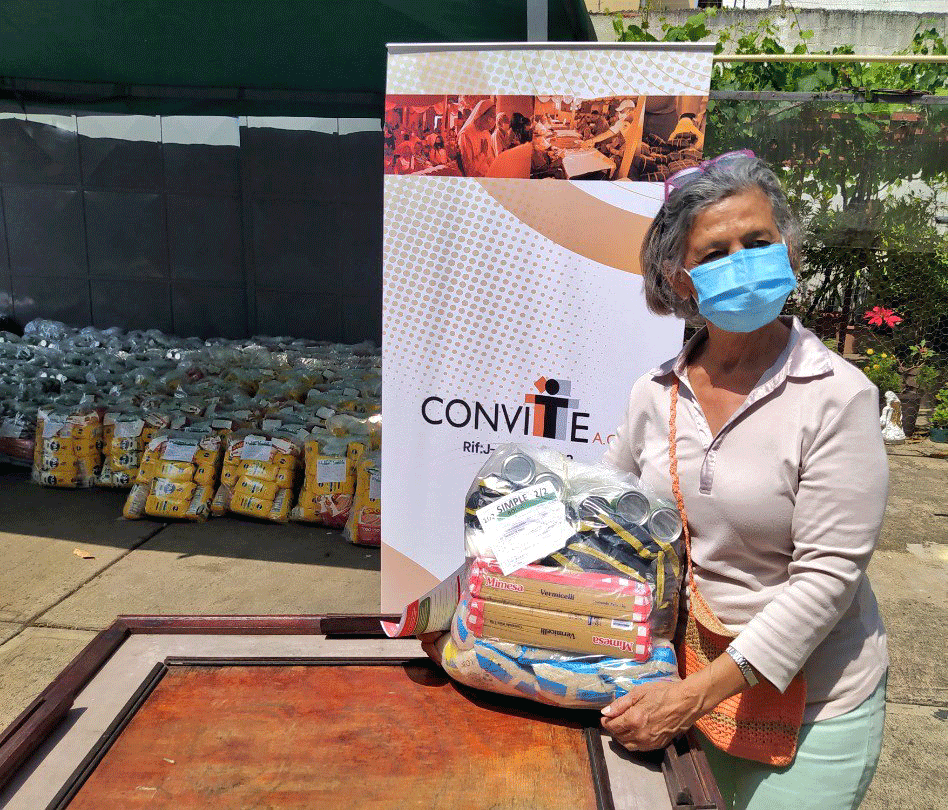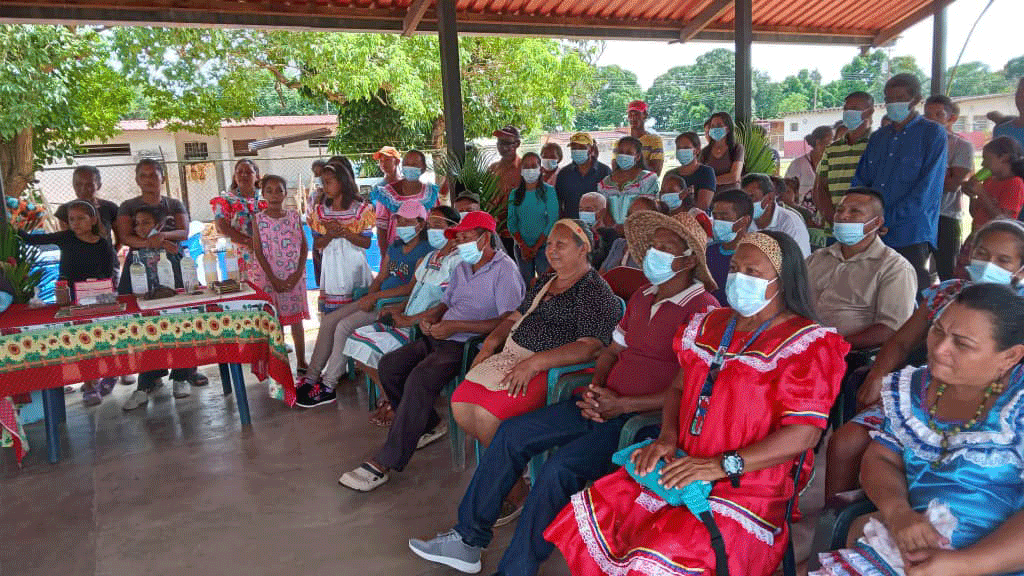Created in 2006, Asociación Civil Convite (Convite A.C.) is a nonprofit organization that promotes social, economic, and cultural rights in Venezuela. Convite A.C. has played an instrumental role in raising awareness around the needs and challenges facing older Venezuelans since the start of the Venezuelan political crisis in 2019. In addition to uncovering and reporting on human rights violations, the organization deploys humanitarian assistance, including a program that has provided medical assistance to 1600 older people. AARP International spoke with the Director-General of Convite, Luis Francisco Cabezas, to learn more about Convite’s work.
Download Interview
AARP What are the major challenges that older people in Venezuela face? How does Convite address those challenges?
Luis Francisco Cabezas The major challenges that older people in Venezuela face are thoseconcerning their ability to meet their food needs and their access to health care. Today, pensioners receive approximately USD 15 per month, which means that they live on USD 50 cents per day — just 26 percent of what an individual should have on a daily basis to live slightly above the poverty line. Venezuela is facing a complex humanitarian emergency with a differentiated impact on older people. Convite has been advocating in humanitarian settings for older people to be included in humanitarian response plans that target their specific needs and for their voices, requests, fears, and desires to be heard.
AARP How does Convite define success? Which of Convite’s projects have been most successful?
 LC For Convite, success is the ability to provide safe and secure assistance and protection to older people in need — particularly those who live in remote areas or with disabilities — and simultaneously fight age discrimination, disability discrimination, and geographical discrimination. During the pandemic, we tackled a project with HelpAge and Doctors of the World, with funding from the European Commission Directorate General for Civil Protection and Humanitarian Aid Operations, to provide older people with health care, food security, and psychosocial support. We also taught a group of 120 older people how to offer support via telephone to their peers who live alone. This initiative got older people involved as active participants of response programs and allowed us to assist a stratum of the population at risk and living alone. In the words of one of the beneficiaries, “Silence at home was broken only by the phone ringing every morning with my peer cheerfully asking me how I had started the day. The experience left us with lessons to share via the Toolbox: Community and Remote Psychosocial Support During the COVID-19 Pandemic. More recently, we implemented a project whereby we provided targeted humanitarian assistance to older people in five Venezuelan states in the form of health care and protection, and we equipped nursing homes and the like with power plants, mattresses, water tanks and pumps, and animal and vegetable protein for six months, with funds from the United Nations Office for the Coordination of Humanitarian Affairs.
LC For Convite, success is the ability to provide safe and secure assistance and protection to older people in need — particularly those who live in remote areas or with disabilities — and simultaneously fight age discrimination, disability discrimination, and geographical discrimination. During the pandemic, we tackled a project with HelpAge and Doctors of the World, with funding from the European Commission Directorate General for Civil Protection and Humanitarian Aid Operations, to provide older people with health care, food security, and psychosocial support. We also taught a group of 120 older people how to offer support via telephone to their peers who live alone. This initiative got older people involved as active participants of response programs and allowed us to assist a stratum of the population at risk and living alone. In the words of one of the beneficiaries, “Silence at home was broken only by the phone ringing every morning with my peer cheerfully asking me how I had started the day. The experience left us with lessons to share via the Toolbox: Community and Remote Psychosocial Support During the COVID-19 Pandemic. More recently, we implemented a project whereby we provided targeted humanitarian assistance to older people in five Venezuelan states in the form of health care and protection, and we equipped nursing homes and the like with power plants, mattresses, water tanks and pumps, and animal and vegetable protein for six months, with funds from the United Nations Office for the Coordination of Humanitarian Affairs.
The project allowed us to create a cognitive stimulation manual based on recreational tools for senior centers. Finally, we were able to provide ophthalmological assistance to
6,000 older people thanks to an innovative device that performs visual triage and acuity tests and processes eyeglasses as required in just 10 minutes.
 AARP How does Convite collaborate with international governments or other nongovernmental groups to accomplish its goals?
AARP How does Convite collaborate with international governments or other nongovernmental groups to accomplish its goals?
LC We generate information for advocacy in scenarios such as the Inter-American justice system (IACHR) and the universal justice system (United Nations). We also provide support to other local organizations that address inclusion of older people and to organizations that work with older people in advocacy subjects.
We have conducted three studies, which are now a national reference, to address the situation of older people: the Survey of the Living Conditions of Older People, the Older People Victimization Report, and the Report on the Situation of Human Rights of Older People, which we have presented before the United Nations Human Rights Council in the two latest universal periodic reviews.
AARP How does Convite help create intergenerational connections?
LC During the pandemic, we had young people train older people in the use of technological tools such as Zoom. Technological literacy has allowed us to find common ground for young people and older people to work together, thereby promoting intergenerational solidarity.
We also launched a program called Bici+Care where young people delivered medicines to the homes of older people who live alone.
AARP How has out-migration affected communities of older adults who remain in Venezuela?
LC Migration has affected older people negatively, as many have been left by themselves, emotionally and physically vulnerable, and even at risk of dying at the hands of violence against older people, which is on the rise, particularly against those who live alone. Migration has left many older women living alone in nursing homes, with no one to care for them, and many older people entrusted with the care of their grandchildren (from their children who migrated), often without being asked. Finally, evidence shows that older people have begun to take their grandchildren to the countries where their parents live, usually making the journey by foot to Colombia, Peru, or Ecuador — or through the Darién Gap.
 AARP How has the COVID-19 pandemic affected your work?
AARP How has the COVID-19 pandemic affected your work?
LC We had to continue to provide assistance and protection without exposing our teams and without exposing our help’s recipients, which meant that we had to establish rigorous biosafety protocols and design mechanisms for remote assistance. These included tools such as our telephone psychosocial support program and our Bici+Care program.
AARP How does Venezuela’s humanitarian crisis affect Convite’s work and its ability to reach older adult communities?
LC We have had to learn much, and, in doing so, we have managed to place the issue of older people in the public agenda and to include older people in humanitarian response plans that target their specific needs. And we must not stop because, historically, older people have been excluded from humanitarian plans or must face asymmetrical competition to access funds. Hence the need for continued advocacy in humanitarian spaces. Likewise, we have gained experience in protocols for the inclusion of older people in subjects such as the fight against sexual abuse, accountability before the communities, and emergency response in remote areas with an emphasis on older people.
Fore more information, visit: https://conviteac.org/